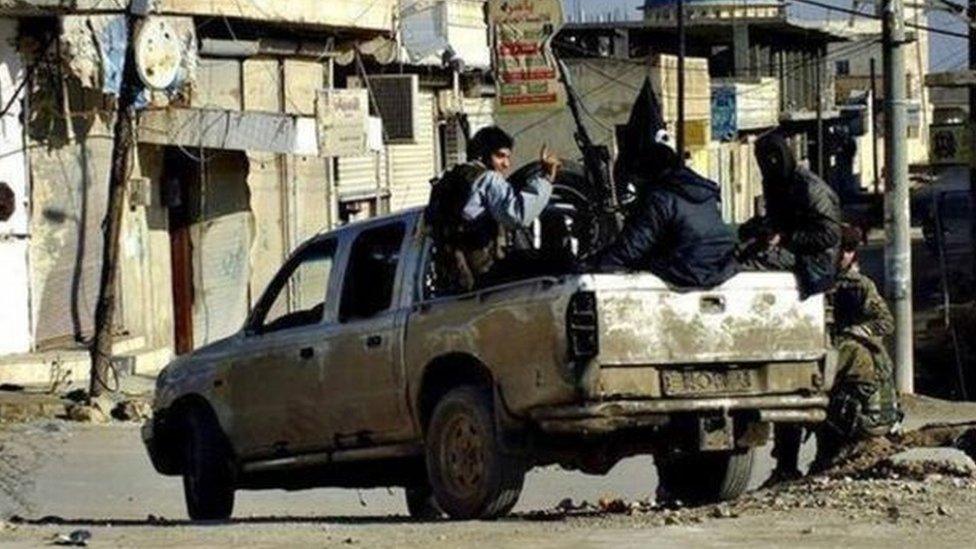The death of Naji Jerf and the battle facing Syria's citizen journalists
- Published
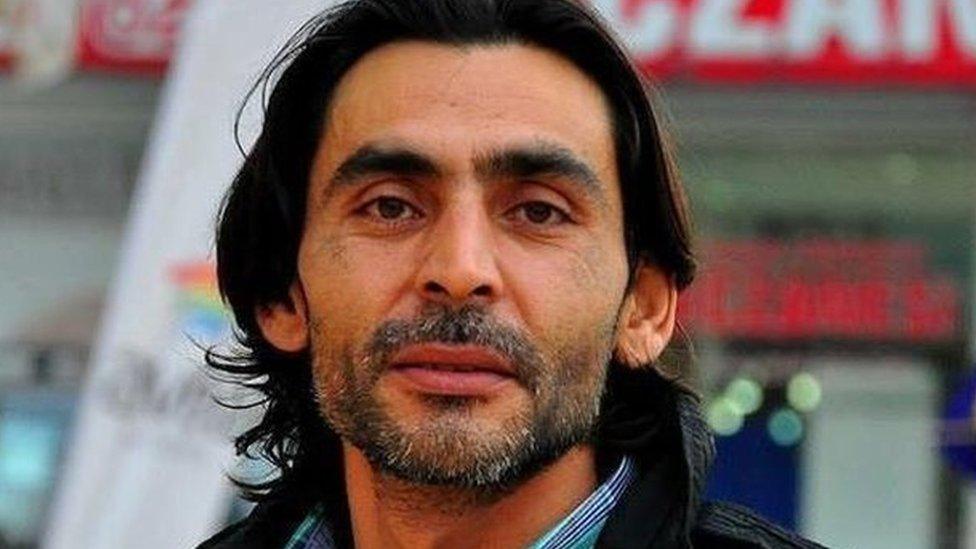
Naji Jerf made two films condemning Islamic State actions
"He was reliable, generous and a great friend…"
That is how Mohammad Mallak, editor-in-chief of Syrian magazine Saiedet Souria, describes his colleague Naji Jerf.
"He was a smiling man, energetic. He was laughing all the time…"
Last month, Jerf, a 38-year-old Syrian anti-Islamic State (IS) activist and journalist, was shot in broad daylight with a silenced pistol in the middle of a busy Turkish street. He was murdered in Gaziantep, a city near the Syrian border, now home to nearly 300,000 Syrians.
He was about to leave Turkey with his family for France, where he had been granted asylum. Soon after his death, Reporters Without Borders released the visa application letter Jerf wrote to the French ambassador in Turkey.
"I now live in the Turkish city of Gaziantep and my safety is more and more difficult after an increase in the threats to me and my family - above all because I am a secularist and belong to the Ismaili minority, which is targeted by the jihadis."
Jerf's journalism and activism made him a target in Syria, the reason he fled across the border to Turkey in November 2012. "Naji was one of the first people who was trying to document what is happening in Syria," says Mohammad Mallak. "The regime wanted him."
"At 2012 we began to see that our friends were being taken and got killed by the regime," he adds. "We knew that if they took a friend that they would call the family in two days to deliver his dead body."
'He knew they'd shoot him'
Once in Turkey, Jerf made two anti-IS films. One of them, about IS in Aleppo, was broadcast on the Saudi-run al-Arabiya channel in September 2012, to an audience of at least 12m, according to the channel.
Mr Mallak says that after the release of this documentary, the threats against Jerf, who had two young daughters, increased.
"He was afraid. He knew that they were planning to do that. But he didn't believe they could do it. Still, he was saying that he knew that they would shoot him. One day he said, 'But I am afraid of the sound of shooting.'"
From Turkey, Jerf also worked with the prominent anti-IS group, Raqqa Is Being Slaughtered Silently (RBSS), reporting on the IS abuses in the northern Syrian city. He had just finished a film about Raqqa shortly before his death. The film has not yet been released.
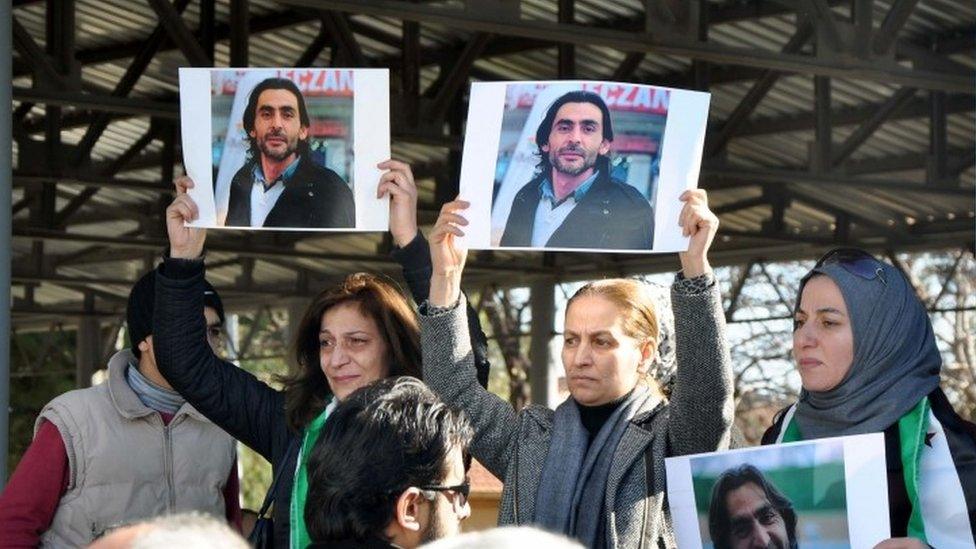
Jerf's funeral was held at the end of last month in Gaziantep
Jerf also used his base in Gaziantep to train citizen journalists in Syria, as he had done with RBSS before leaving Syria, according to Mr Mallak.
"Naji trained more than a thousand citizen journalists," he says. "We trained face to face, we trained via Skype and created tens of journalists' committees to cover the war. We taught them how to make a TV report, radio report, how to write for the news…"
Turkey, which shares a 900km (560 miles) border with Syria, quickly became a haven for hundreds of Syrian media outlets from 2012, with the majority of journalists based, like Jerf, in border towns like Gaziantep.
But the Committee to Protect Journalists (CPJ) said recently that Syrian journalists felt Turkey was becoming increasingly unsafe for them. Syrian journalists "fear the Turkish government is not doing enough to protect them from potential threats emanating from Syria", the group wrote, external.
In October 2015, two other Syrian activists were killed in south-eastern Turkey: Ibrahim Abdel Qader, a co-founder of RBSS, and Fares Hammadi, activist and journalist.
The Turkish Journalists' Association has added Naji Jerf's name to the list of journalists killed in Turkey and says it emphasises the importance of maintaining Syrian journalists' safety in the country.
On 10 January, three people were arrested over Jerf's murder. A court in Gaziantep remanded the main suspect and his two alleged accomplices in custody prior to their trial.
But despite these arrests, it is hard to say that Syrian journalists feel any safer here in Turkey.
Several Syrian journalists declined to comment for this piece, even anonymously. Both inside Syria and out, being an outspoken Syrian journalist reporting on the war and IS activities continues to be a dangerous job, as Naji Jerf discovered.
- Published28 December 2015
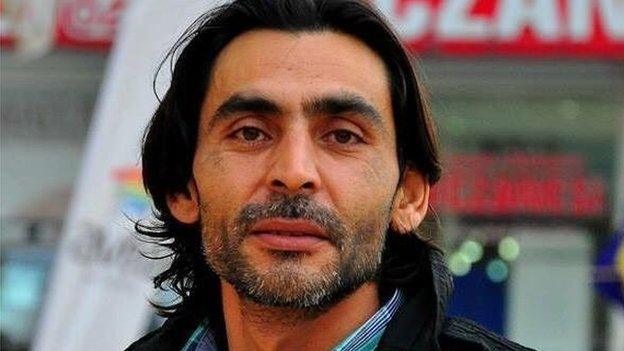
- Published10 January 2016
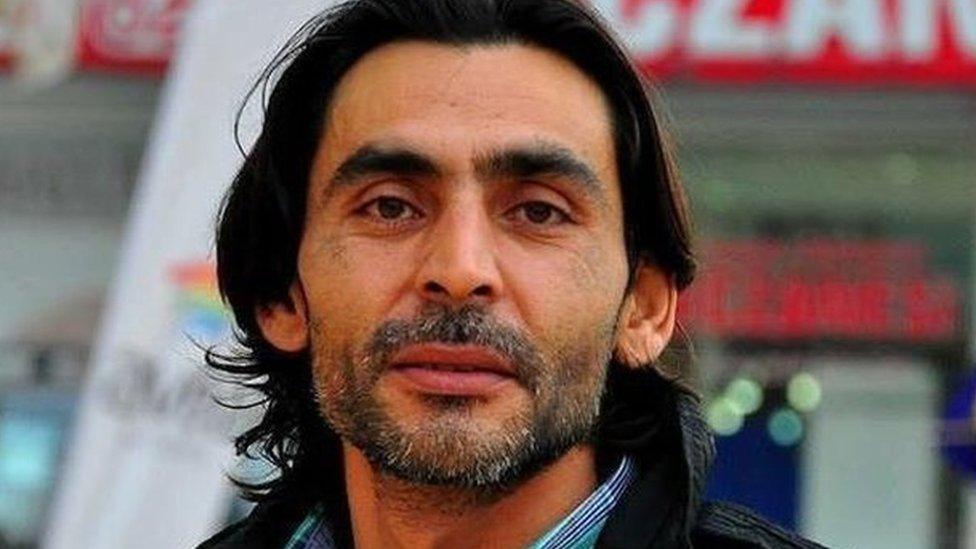
- Published26 November 2015
